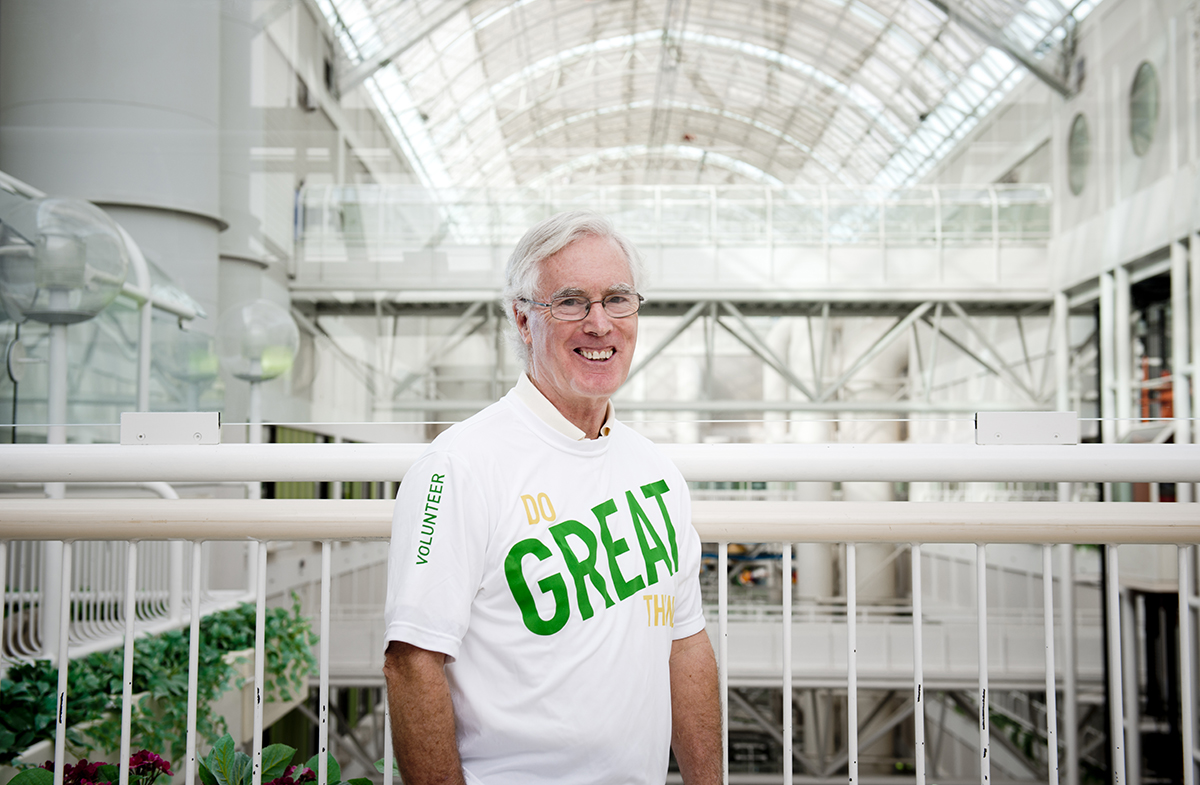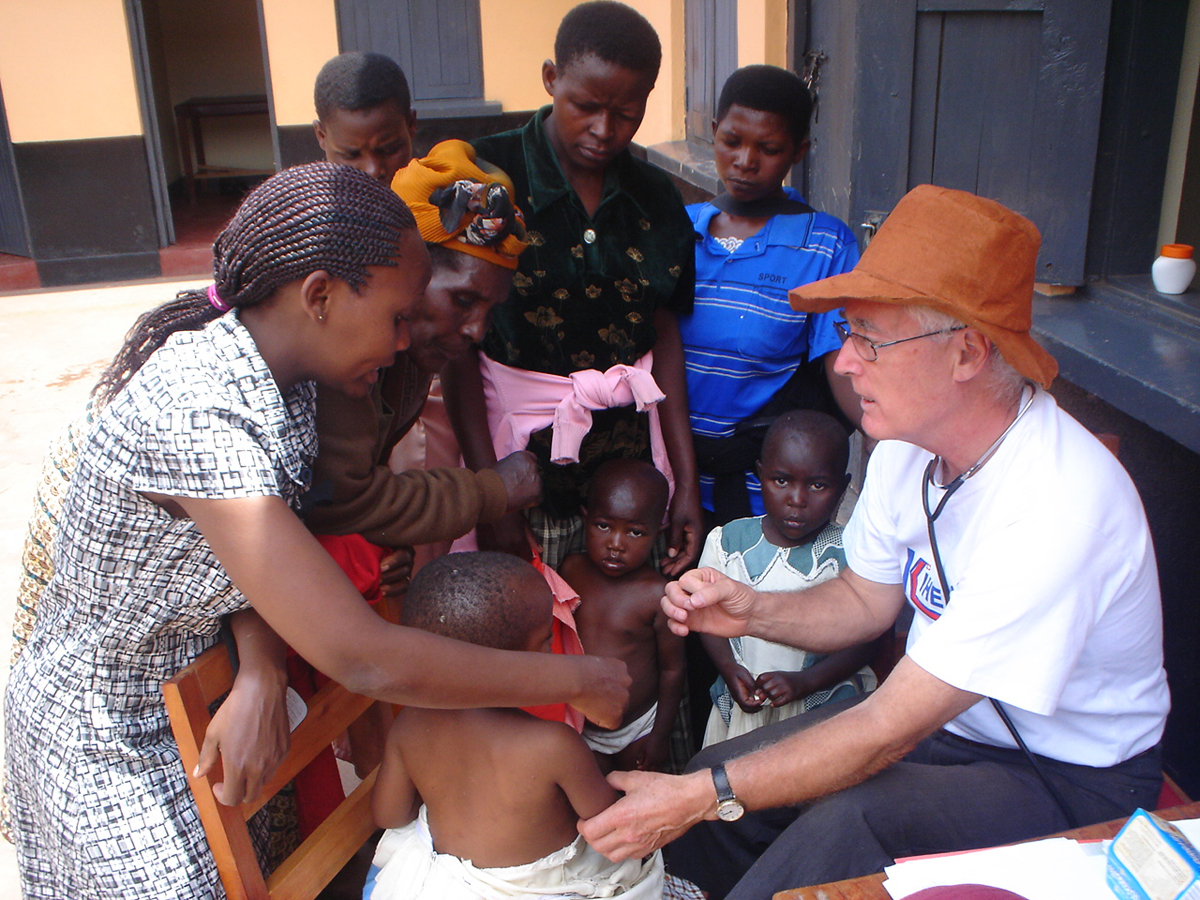Adrian Jones, '64 MD

Adrian Jones, '64 MD, has put his medical degree to work - doing great things on campus and around the world. His volunteer work has taken him from Uganda to Armenia, from Ghana to Nicaragua. He has left his mark in the halls of the University of Alberta Hospital through framed memories and countless stories shared with colleagues that he passes in the hall.
What does volunteering mean to you? Just giving to other humans a tiny bit of what I was given by pure luck/fate. It is very easy to keep for ourselves our affluence, our comfort. Some however have been beacons of philanthropy. Each person who gives to another according to their ability and to the others need makes both of them more essentially human
What impact has volunteering had on you? For me, I have travelled to places I would not otherwise, maybe, have seen. I have certainly met many wonderful people and recognised their abilities but also the systemic processes that prevent them from fully realising their potential. I have felt great pleasure in teaching very talented and enthusiastic students of all ages, both in the health care setting and outside it, in small distant rural villages.
What advice would you give to people looking to volunteer? First, to examine why they wish to volunteer, and whether it is in Canada or overseas. Volunteering abroad can be arduous, uncomfortable, hard work especially in tropical areas. It is not necessarily for the faint of heart or the squeamish! Then to examine whether their volunteerism can best be achieved by providing funds for established charities/NGOs already in the field or to actually join such a group and go. Next, to find out as much as possible about what they might do and with whom, and to be prepared to put aside sufficient time. Ensure that they have the skills that will be needed in the job that they expect to do. Some positions require no skills, e.g. Habitat for Humanity either in Canada or overseas requires only a healthy back, and disposition! However teaching any activity requires first the essential skills and then the ability to learn from the people with whom one is working, and to unlearn many of one's preconceived notions and to be flexible. Finally, go with full medical protection available and have fun.

Share a story or a memory from your time volunteering. So many! Maybe a special one occurred in Armenia, working with Habitat for Humanity Armenia. Each day we ate lunch in the back garden of the house on which we worked, at a long table set under a large fruit tree, always very fresh vegetables and fruit, delicious. Close to the final day of our work the owners of the house organized a wonderful party with relatives, some villagers who had been helping, and us. It was a beautiful October evening, warm, a hazy sky with dust from many farmers working their fields, and Mt Ararat a backdrop, snow peaked, shining in the setting sun across the valley. We ate lots, drank even more, danced to western and middle eastern music from a boom box.
Of course the medical volunteering brings back so many memories, hundreds of people lined up waiting to be seen by our team of dentists (Kindness in Action) and physicians at each village, most who had never seen a physician, and none of whom had ever seen a dentist. Each child was so trusting of this muzunga doctor examining them and each parent more thankful than seemed deserved considering that often we could only offer reassurance, and occasionally some hopefully useful medicine in the absence of any investigative ability beyond our eyes, ears and our hands.
Anything else you would like to add?
Ideally, aid organizations should be working to make themselves redundant, teaching the people to fish, not just giving a fish a day. Volunteers can help in this ethic by asking "How am I building the capacity of these people? Will my work be forgotten within a few days of my leaving, or can others who follow build upon what I have done to build higher?"